Turn any article into a podcast. Upgrade now to start listening.
Premium Members can share articles with friends & family to bypass the paywall.
Happy Tuesday! PepsiCo announced on Monday that it would be releasing a protein-packed line of Doritos. Some may mock this protein-packing era, but we at TMD plan to give the new chips a try, potentially dipping them in high-protein hot sauce, before washing them down with a non-alcoholic protein beer or the TikTok-viral Costco protein water.
Quick Hits: Today’s Top Stories
- Following the return by Hamas of all 20 surviving Israeli hostages on Monday morning as part of the first phase of the ceasefire agreement between Israel and the terror group, Israel released nearly 2,000 Palestinian prisoners, most of whom were imprisoned since the October 7, 2023, massacre, including 250 who were serving life sentences. Hamas was also required to turn over the bodies of all 28 deceased hostages through the Red Cross, but it returned only four, remains that were then sent to a forensics lab for identification. While Israeli public broadcasting reported that Hamas members had informed mediators that they would be unable to immediately return the bodies due to “limitations beyond our control,” Israeli Defense Minister Israel Katz posted on X Monday that “Any delay or deliberate avoidance will be considered a gross violation of the agreement and will be responded to accordingly.” Meanwhile, Hamas has killed at least 33 people in the Gaza Strip since Friday, reportedly in an effort to secure the region in the event the ceasefire collapses.
- President Donald Trump delivered a triumphant speech to Israel’s parliament, the Knesset, in Jerusalem on Monday morning, after completion of the first phase of the Gaza peace treaty, saying that this moment marked not only the end of the war, but “the historic dawn of the new Middle East.” During the speech, Trump praised Prime Minister Benjamin Netanyahu and said that Israel’s President Isaac Herzog should pardon Netanyahu, who is on trial for corruption charges. Though Israeli parliamentarians received Trump with rapturous applause, a member of Netanyahu’s party, Amit Halevi, boycotted the speech, saying the “agreement is the opposite of victory,” and the president was briefly interrupted by two left-wing members, Ayman Odeh and Ofer Cassif, who shouted and raised a banner reading “Genocide” before being swiftly removed from the chamber.
- Later on Monday, Trump traveled to Egypt to head up a conference with Egyptian President Abdel Fattah el-Sisi attended by nearly three dozen global leaders to discuss plans for Gaza’s future. The leaders signed a document that, according to Trump, will “spell out a lot of rules and regulations and lots of other things.” Netanyahu was not in attendance. Meanwhile, Trump, el-Sisi, and the leaders of Qatar and Turkey—Tamim bin Hamad Al Thani and Recep Tayyip Erdoğan, respectively—signed a memo supporting the ceasefire and hostage release deal. The memo emphasized the nations’ pursuit of a “comprehensive vision of peace, security, and shared prosperity in the region, grounded in the principles of mutual respect and shared destiny.”
- The White House and Ukrainian government confirmed on Monday that Trump will host Ukrainian President Volodymyr Zelensky at the White House on Friday to discuss potential arms and resources the U.S. could provide Ukraine, including long-range Tomahawk missiles. Trump told reporters on Sunday that he was considering giving Russian President Vladimir Putin an ultimatum: end the war, or the U.S. would give Ukraine Tomahawks, to which Kremlin spokesman Dmitry Peskov replied that “the topic of Tomahawks is of extreme concern” and renders a “very dramatic moment” of high tensions between the U.S. and Russia. Meanwhile, Zelensky told the North Atlantic Treaty Organization Parliamentary Assembly that lessons from the Israel-Hamas ceasefire deal could be applied to ongoing peace efforts in Ukraine. “Putin can be forced into peace—just like any other terrorist,” he said. Russia launched 96 drones on Monday night, striking central Ukraine and the city of Kharkiv, injuring an undetermined number of people.
- U.S. and Cuban government officials announced on Monday that José Daniel Ferrer, an imprisoned Cuban opposition leader and activist, was released to the U.S. after both countries reached an agreement. Secretary of State Marco Rubio said in a statement on Monday that Ferrer was “suffering years of abuse, torture, and threats to his life in Cuba” and that the administration is “glad that Ferrer is now free from the [Cuban] regime’s oppression.” Meanwhile, Alejandro García, a high-ranking official in Cuba’s Foreign Ministry, said that Ferrer was released because of “a request made by the U.S. government.” On Friday, Cuba’s Foreign Ministry denied reports from the U.S. that Cuban military service members have been deployed to Russia or have aided in the invasion of Ukraine, stating that the country has, since 2023, convicted 26 defendants in five separate cases of engaging in criminal mercenarism.
Here Comes the Sun—or Maybe Not

Across the Tibetan Plateau, Chinese solar-panel projects literally span the horizon. The Khavda renewable energy park—a massive Indian wind and solar energy farm built on a salt desert near the Pakistani border—will be visible from space. And the stormy seas of the Dogger Bank, off the northeast coast of England, will eventually host a wind farm generating more green energy than anywhere else in Europe.
In the meantime, the United States is pursuing a different path. “We’re getting rid of all the so-called renewables,” proclaimed President Donald Trump to the United Nations last month. “By the way, they’re a joke. They don’t work. They’re too expensive.”
Last week, the Trump administration rescinded almost $8 billion allocated by the Department of Energy during the administration of President Joe Biden to more than 300 green energy projects, with a further $12 billion being considered for cancellation as the federal government shutdown continues. Just weeks before that, the White House announced $625 million in new subsidies to keep aging coal plants open, along with opening up to 13.1 million acres of federal land to coal mining and reducing regulations on water and air pollution.
As the world forges ahead with massive investments in clean energy, the White House is defiantly tacking away from an emerging consensus under the tagline of “Unleashing Energy Dominance,” arguing that it’s restoring capacity and balance to a power grid struggling to meet electricity demand. The Trump administration’s moves raise the question of whether it is making a costly miscalculation—or whether concerns about grid reliability and energy costs reflect realities other nations are overlooking.
As a non-paying reader, you are receiving a truncated version of The Morning Dispatch. You can read our full item in the members-only version of TMD.
A new report from the energy think tank Ember found that through the first half of 2025, renewable electricity generation—broadly defined as wind, solar, nuclear, hydropower, and bioenergy—surpassed coal for the first time. Global electricity demand increased 2.6 percent from January through June this year, and renewable energy met 34.3 percent of the total, squeaking past coal’s 33.1 percent (the rest was met by gas and other fossil fuels).
Solar was the driving force behind the increase, according to the report. While wind and solar generation grew by more than enough to meet the 2.6 percent increase in demand (down from 5.3 percent in the previous six months due to slowing economic growth and fewer heat waves in Asia), solar alone met 83 percent of the world’s new electricity requirements. Year-over-year, solar generation increased by 31 percent, with wind growing 7.7 percent. The other major low-carbon energy sources, nuclear and hydropower, saw increases of 2.5 percent and decreases of 2 percent, respectively.
Economies of scale, centered around massive manufacturing hubs in China and Southeast Asia, have driven solar costs down sharply compared to where they were a decade and a half ago. Since 2010, the cost-per-watt of solar electricity has decreased by 90 percent, from around 30 cents a watt to 3 or 4 cents a watt (assuming regional variance). China now makes around 80 percent of the world’s solar panels, making it far more feasible for other countries to import them cheaply.
Technological improvements, such as advances in the ability of panel cells to efficiently capture the sun’s energy, have also helped. Perhaps the most significant technological advancement is the development of improved energy storage in batteries, allowing utility systems to store energy for times when the sun isn’t shining. Battery advances have eased—though not solved—renewable energy's intermittency problem. In the absence of a means to store renewable energy, power grids have tended to rely on steadier sources of energy, like coal, natural gas, and nuclear energy, to provide a crucial backstop when solar and wind power fade.
But battery storage has made enormous leaps. In the last five years, for example, California has been able to triple battery storage capacity. It’s part of a global trend: The world’s capacity is expected to increase 10 times by 2035. Wracked by rolling blackouts in 2020 as its grid faced too much strain for renewables to handle, California now regularly sees roughly a quarter of its electricity demand met by batteries during peak seasons.
“The truth is, renewables are cheap,” Kenneth Gillingham, an economist who studies energy economics at Yale University, told TMD. “The big challenges right now are not the technology,” he argued, but rather questions of siting, connection to the grid, and permitting. Because of existing environmental laws and regulations, any U.S. energy project has to go through a lengthy permitting process. Currently, 61 percent of environmental impact statements, required under the National Environmental Policy Act, take over two years to complete—even though the law itself mandates that such statements take less than two years to produce.
In Congress, legislators on both sides of the aisle are increasingly identifying a need to reform permitting: In 2024, then-Sen. Joe Manchin, a Democrat from West Virginia, and Sen. John Barrasso, a Republican from Wyoming, introduced a bill to streamline permitting for energy projects, but it failed to pass, in part due to opposition from environmental groups.
The Trump administration has taken several steps, through executive orders and rule changes at the departments of Energy and the Interior, to make building new energy infrastructure easier. But it has also canceled several projects that had already been permitted, raising concerns about market uncertainty. Interior Secretary Doug Burgum has also assumed personal responsibility for approving wind and solar projects, which he has criticized for problems of intermittency and for receiving “preferential treatment” under the Biden administration.
In August, the Department of the Interior’s bureau responsible for ocean energy abruptly canceled the Revolution Wind project, which was reportedly 80 percent finished and set to provide offshore wind power to Rhode Island and Massachusetts. Interior officials cited undefined national security concerns (the Danish company leading the project sued over the order, which led to a judge overturning it for now). And last Thursday, the DOI canceled the environmental impact review process for Esmeralda 7, a constellation of solar power farms in the Nevada desert that would have been one of the largest such projects in the world.
Outside of permitting moves, however, Trump administration officials argue that they’re merely allowing the free market to work. “Thirty-three years we’ve subsidized wind and solar power in the United States,” Energy Secretary Chris Wright said late last month. “If you can’t rock on your own after 33 years, maybe that’s not a business that’s going places.”
Some analysts welcome these moves. “Where I think we should be headed—and where we’re not headed fast enough—is where all of the above can compete fairly, and that the market will determine what the best mix of energy is,” Jack Spencer, a senior research fellow for energy and environmental policy at the Heritage Foundation, told TMD. Spencer also argued that, while not ideal, recent administration funding for coal-fired power plants was necessary to restore balance to a grid that had become overburdened with intermittent power sources.
Benjamin Zycher, a senior fellow in energy and environmental policy at the American Enterprise Institute, went further. “The competitive disadvantages of coal plants are entirely artificial,” he argued in response to a question about the price of renewables dropping below coal. “They’re not driven by market fundamentals. They’re driven by policies.” In Zycher’s view, the White House is restoring fairness to the energy marketplace.
But Joseph Majkut, the director of the energy security and climate change program at the Center for Strategic and International Studies, told TMD that the global shift toward renewables, across a variety of different companies, demonstrates that renewables aren’t solely propped up by government policy. “The market is identifying a portfolio of generation which provides effective load-carrying capacity and enough new generation to meet growing power demand,” he said.
Electricity demand in both the U.S. and the world is expected to grow in the next several decades, with data centers for artificial intelligence quickly becoming a significant user of power and developing countries needing more energy to lift their citizens out of poverty. Majkut told TMD that while renewable energy may not be quite as cheap and efficient as many advocates claim, it’s still a “very useful part of a portfolio of generation to help us meet our needs.”
Even without federal subsidies, then, renewable energy might finally have enough momentum to stand on its own, especially outside of the U.S. “Once renewables become the cheapest thing to build, if you’re in Brazil, if you’re in Ghana, if you’re in Mozambique, and you want to put on more electricity, you start looking at the costs,” said Gillingham. “You suddenly are going to pretty quickly look at solar and wind as the options.”
Today’s Must-Read
A good starting point for understanding why trade is beneficial is that countries don’t trade with countries. People in different places trade with other people, and that’s an important distinction. When governments restrict trade, it means that they limit people’s freedom to buy what they need and their freedom to produce what they’re best at producing. Global trade means millions of people buying what they want, from whoever produced it, to satisfy their needs. And the concept of comparative advantage explains why expanding the freedom to buy from people all over the world makes people better off.
Toeing the Company Line
Why Snobbery Is Cheap
On getting the details—and arguments—right.
Mash of Civilizations
The post-9/11 standoff ends in compromise.
How Much Humiliation Will Pam Bondi Endure?
The DOJ has turned into Donald Trump’s boutique law firm. Does the attorney general care?
How a Pediatrician Earns Trust in a Time of Vaccine Doubt
As vaccine fears grow, some practices see value in working with shot skeptics, rather than refusing to treat them.
The Future of Free Speech
Is it time for the influencer peace treaty?
In Other News
Today in America:
- House Speaker Mike Johnson said on Monday that Congress won’t pass a bill to end the federal shutdown until Democrats let go of their demands to extend health care subsidies, warning that “we’re barreling toward one of the longest shutdowns in American history.”
- The White House officially imposed new tariffs at midnight Tuesday, with additional rates of 10 percent to 50 percent on goods including lumber, cabinets, and furniture.
- Democratic Gov. Gavin Newsom of California signed legislation on Monday that requires phone manufacturers to verify the age of their users and requires AI companies to add more disclosures and safeguards.
- Treasury Secretary Scott Bessent said that President Donald Trump still plans to meet with Chinese leader Xi Jinping later this month—after the president announced on Friday, in response to new Chinese export controls on rare earth minerals, that “there seems to be no reason” to meet—and added that there have been “substantial communications” between the two nations on how to de-escalate rising trade tensions.
- GOP North Carolina state congressional leaders announced on Monday that the state legislature will vote next week on redrawing the state's congressional district map ahead of the 2026 midterm elections.
- News outlets including the Associated Press, CNN, the New York Times, Newsmax, NPR, Reuters, the Washington Post, and the Washington Times refused to agree to the Pentagon’s new press policy, which restricts access and only allows for reporting on explicitly authorized information.
Around the World:
- Madagascar President Andry Rajoelina stated in a video released Monday that he has been forced into hiding outside the country, after anti-regime, youth-led protests turned violent, one day after he warned that the movement was preparing a coup.
- During a Tuesday cabinet meeting, South Korean President Lee Jae Myung announced “all-out” efforts to protect Korean citizens from Cambodian crime rings after a 22-year-old was allegedly tortured and killed in Cambodia, one of multiple notable kidnappings of Korean citizens in recent months.
- Russia’s security service announced on Tuesday that it had opened a new criminal case against London-based former oil magnate—and exiled Kremlin critic—Mikhail Khodorkovsky, accusing him of creating a “terrorist organisation” and plotting a coup.
On the Money:
- JPMorgan Chase CEO Jamie Dimon wrote an op-ed in the Wall Street Journal, announcing that the bank plans to allocate $1.5 trillion over 10 years “to facilitate, finance and invest in industries crucial to national security and economic resilience, from critical medications and minerals to military equipment and semiconductors.”
- ChatGPT developer OpenAI announced a new deal with the tech manufacturer Broadcom to design and produce its own semiconductor chips.
- The Dutch government seized control of the semiconductor manufacturer Nexperia, citing concerns that data would be shared with the chip maker’s Chinese-based parent company, Wingtech.
- Google’s parent company, Alphabet, announced on Monday it would invest $9 billion in South Carolina to expand its artificial intelligence infrastructure in the state.
- Following pressure from Trump in recent months to lower drug prices, several pharmaceutical companies announced Monday that they will offer more affordable direct-to-consumer options.
- SpaceX successfully launched its 11th test flight of the Starship rocket on Monday.
Worth Your Time:
- Bari Weiss interviews 2025 Nobel Peace Prize winner María Corina Machado (The Free Press)
- Anton Howes celebrates the work of Joel Mokyr, who just won the Nobel Prize for Economics (Works in Progress)
- “He Just Wanted to Modernize the DMV. Then Ken Paxton Sued Him.” (Texas Monthly)
- Andrew McCarthy dives into the latest details on the federal government’s case against New York Attorney General Letitia James. (National Review)
- Deepak Varuvel Dennison considers how the knowledge not yet available online contributes to “ignorant” AI chatbots. (Aeon)
- Andrew Ross Sorkin considers whether today’s investment environment and its deregulations mirror the lead up to the 1929 economic crash. (New York Times)
- Paramount Pictures released a trailer for The Running Man, directed by Edgar Wright.
Presented Without Comment
Politico: Erdogan Wants Meloni To Stop Smoking, But Macron Thinks It’s a Lost Cause
Also Presented Without Comment
Associated Press: California Engineer Wins Pumpkin Contest With 2,346-Pound Gourd
Let Us Know
Have any thoughts or questions about today’s newsletter? Drop us a note in the comments or by emailing us at tmd.questions@thedispatch.com. We read every submission, and your message could be featured in tomorrow’s “Behind the Scenes” segment.
Have any thoughts or questions about today’s newsletter? Become a member to unlock commenting privileges and access to a members-only email address. We read every submission, and answer questions in the following edition of TMD.





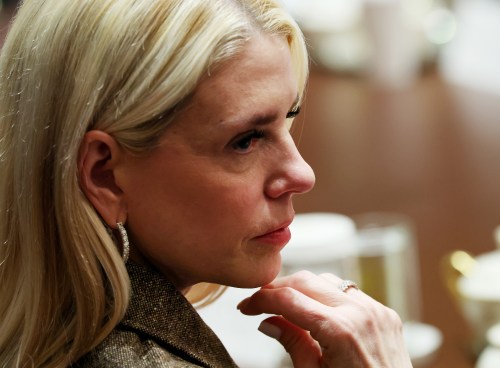

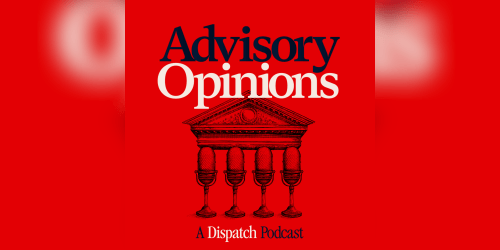




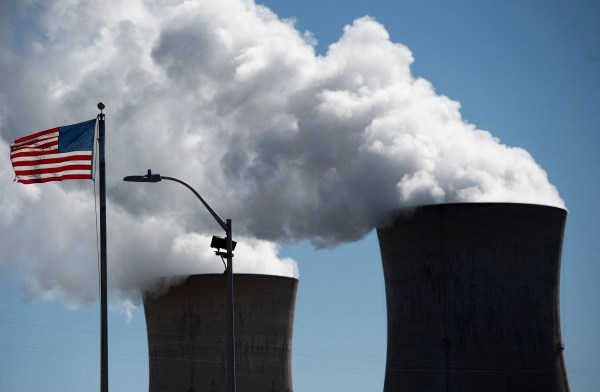

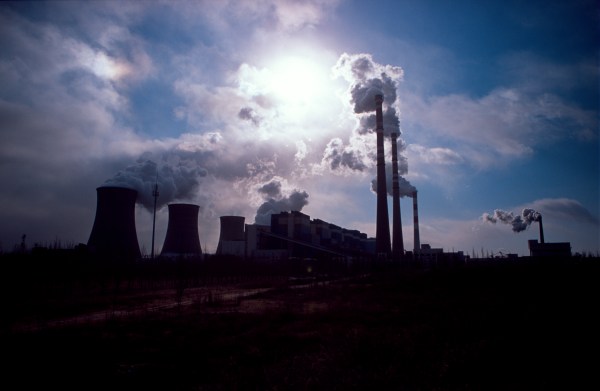
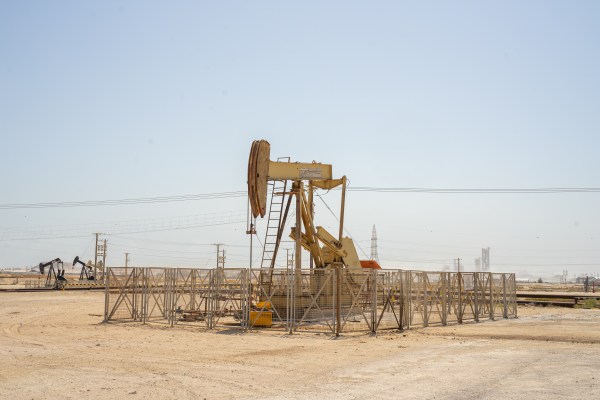
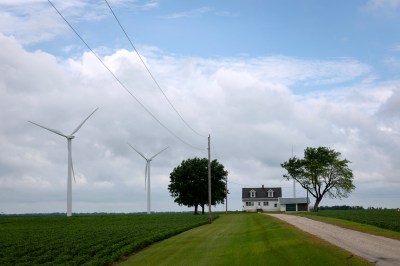
Please note that we at The Dispatch hold ourselves, our work, and our commenters to a higher standard than other places on the internet. We welcome comments that foster genuine debate or discussion—including comments critical of us or our work—but responses that include ad hominem attacks on fellow Dispatch members or are intended to stoke fear and anger may be moderated.
With your membership, you only have the ability to comment on The Morning Dispatch articles. Consider upgrading to join the conversation everywhere.